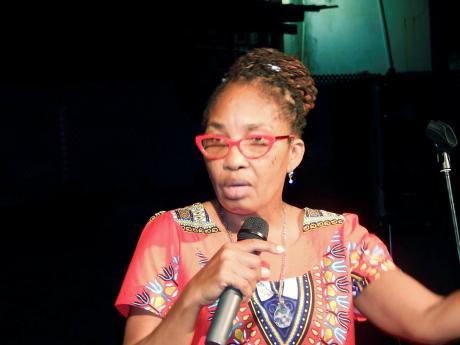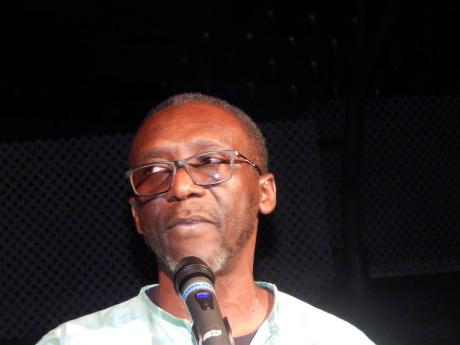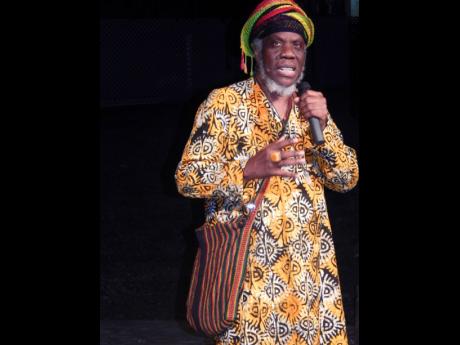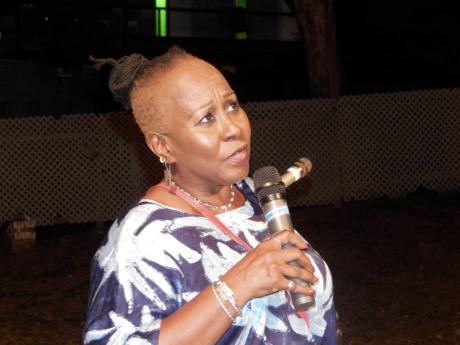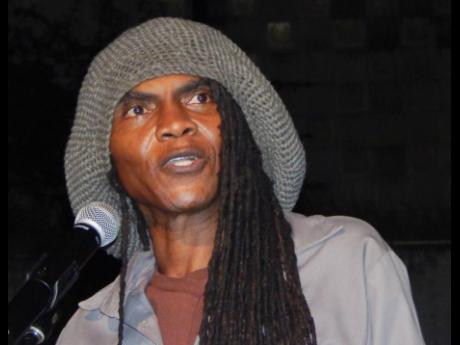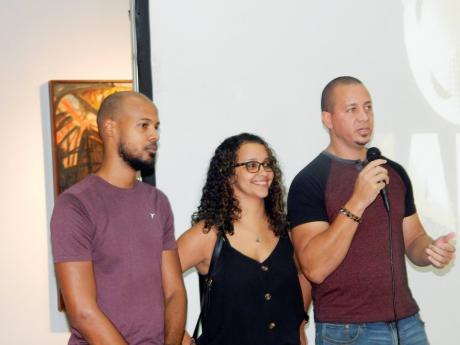For the Reckord | New film-makers, long-time poets showcase talent
Two different forms of the creative arts were offered to appreciative audiences on Sunday and Tuesday at two of Kingston’s major cultural institutions. The first – a collection of short films made by new film-makers – was shown at the National Gallery; the second – poems by poets with decades of experience – was at the Edna Manley College of the Visual and Performing Arts (EMCVPA).
Both presentations were of high quality, indicating there is indeed what one of the film-makers, actress-producer Noelle Kerr, called a “limitless amount of talent” available in Jamaica. She was probably speaking specifically about film-making, as she was thanking JAMPRO for its assistance in making the film she produced, Origins, with Kurt Wright directing.
But her words could have applied to the equally creative poets who performed on Tuesday night at the final Poetry Society of Jamaica’s monthly poetry-reading session for 2019. The featured poets, Owen ‘Blakka’ Ellis, Cherry Natural and Mutabaruka, all with about 40 years in the business, were highly entertaining – even with their darker poems. They were supported by four younger poets, who also earned praise from the audience.
Wright revealed to the NG audience that through its four-year-old, script-to-screen Propella project, JAMPRO has already overseen the production of 14 short films, with more in the pipeline. His information that the average cost for a short film was about $750,000 suggested why, even with an equal distribution of talent, there are more poets around than film-makers.
Origins began, Wright said, with he and Kerr’s determination not to make another “buss shot, jump fence” film. Instead, they created an imaginative fantasy, which brings together characters from several periods of our history. Included are Three-Fingered Jack, Nanny of the Maroons, the Rose Hall Great House ‘witch’ Annie Palmer, Quashie – a Maroon who hunted down runaway slaves – and the mythical spider, Anancy.
Wright said that he and Kerr intended to take their film to bigger producers as “proof of concept” so that it could, perhaps, reach as far as Netflix. As successful as Origins, but very different in tone, was Flight, directed by Kia Moses and Adrian McDonald and produced by Tashera Lee Johnson.
Unlike the wide-ranging Origins, Flight’s story keeps its characters at home, though, ironically, its theme is a spacecraft flight to the moon. The main character, a little boy who lives in an impoverished home, builds a cardboard and foil spacesuit and a wooden spaceship, and imagines himself flying to the moon.
After the obligatory setback – every story has one – the boy’s father helps him to build a better, handcart-looking spacecraft. To the sound of a rocket blasting skyward from Cape Canaveral, father pushes son in the contraption down the street for a satisfying, albeit sentimental end.
The other Jamaican films were Code, directed by Sarah Manley and produced by Darin Tennent; A Broken Appointment, directed and produced by Kaleb D’Aguilar; and Trust, directed by Jason Evans and produced by Renee Ceasar.
EMCVPA poetry
After the open-mic segment of the poetry session at the EMCVPA, which was devoted to the new poets, Poetry Society President Tommy Ricketts introduced university Professor Opal Palmer Adisa as the person who conceptualised the current islandwide, 100-day celebration of Louise ‘Miss Lou’ Bennett-Coverley’s life and work.
Calling Miss Lou the “queen of Caribbean culture”, Palmer said that the poet-essayist understood the importance of African culture to our own. She said that she proposed the 100-day celebration to the Ministry of Culture as an opportunity to celebrate our language and legacy.
Ellis, the first of the night’s three featured poets, started what turned out to be a trend. He read some poems from his published collection and recited others from memory, presenting pieces which were sometimes entertaining, sometimes disturbing. Ellis’ topics included love and sex, personality aberrations, social injustice and humour.
Delivered with engaging energy, the poems were Anancy Story (about the truths in stories), Come Eat (about eating fish and making love), Tick Tock (about less pleasant man-woman relationships), and the humorous Gate Man, about a gatekeeper whose overzealousness costs him his job.
Cherry Natural’s poems were Sen De Poem Come (about allowing poetry to flow), Fight Back (about abused women physically fighting back), It is What It Is (about a persona who insists on being herself), Levi Jeans (about the persona’s desire for a good-looking man in jeans), and Stop de Coming an Come (about women embracing the orgasm).
Mutabaruka’s poems were generally serious, the first being about the capture of Africans and their enslavement. His second, Gimme Back, is about his desire to get back what was taken from him – his name, language, symbols, et cetera. I Am the Man You Love to Hate is a statement by a proud Rastafarian.
Another of his poems tells the tragic tale of Johnny, a singer who goes to New York and becomes a drug addict. Mutabaruka ended by reciting a popular calypso of yesteryear, The Monkey Speaks His Mind, about a monkey trying to show the superiority of his species over humans.

